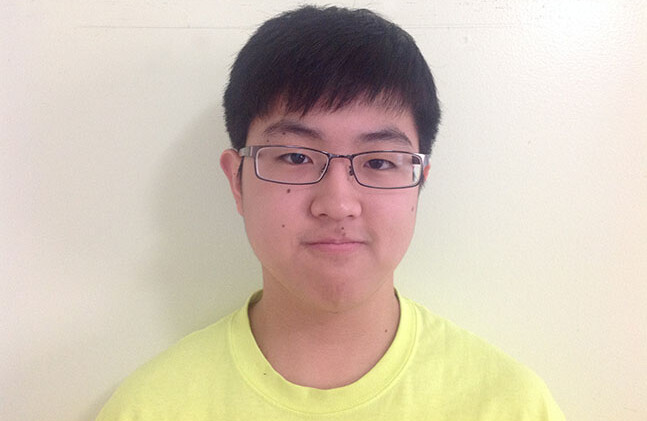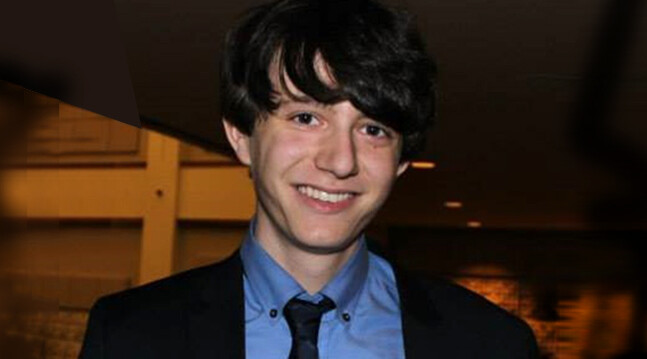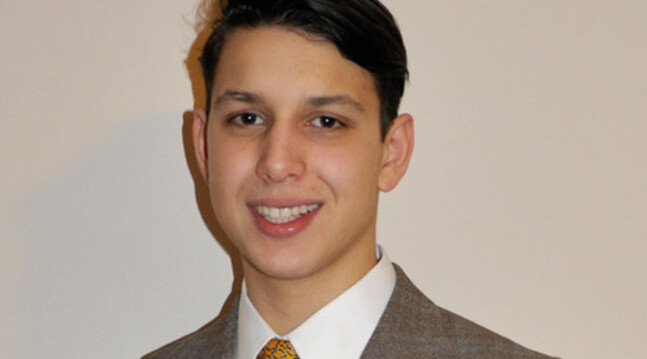Alex Gyujin Kim, is 15 years old and a student at Hunter College High School, New York City. "Although I see myself as a more mathematically geared student, I love to read anything I can get my hands on. I also have an insatiable curiosity for anything regarding technology and gadgets."
Essay Topic: What Does Moral Leadership Mean to You?
With the recent passing of Nelson Mandela, the question of what makes someone a moral leader has become more relevant. We generally define an ideal moral leader by his or her charisma, publicity, and courage, pigeonholing quiet people as those who are not "influential" enough to become moral leaders. I also wanted to be a man who could change the whole world at the largest scale; someone on television. It only took a quiet doctor who lived next door to change my perspective completely.
He was an introverted doctor. We would only exchange brief "hellos" when we met in the apartment hallway, and a "good night" before we both shut our respective apartment doors. His apartment number was 213 and mine was 212, right next to his. He had no immediate family. His side of the house always seemed silent. The lights were always on in the afternoon and off in the night. The only sounds would be the daily opening and closing of the front door as he left for work. His office was neatly organized; everything from his medical documents to his nails was filed. His office was also small, but the locals preferred the homely aura of the carpeted office to the sharp cut marble floor of the large hospital 3 blocks down. No one really knew why he rarely talked with anyone, and so we called him the "Mystery Man."
In the middle of the lobby was always a cardboard box labeled: Donations. When that box filled to the brim, he would lift it by its torn bottom and carefully bring it to the nearby children's care home. For many, these care homes only existed in their imaginations, as children who they only heard about on TV and the newspaper. Many of their own parents had abandoned them and its staff had given up on trying to maintain an enjoyable atmosphere in the care home. Boxes were strewn across the floor, most of the children slept on hard wooden floors, and food was limited as donations fell and rent and bills increased. Blankets of dust and debris had settled on everything as cleaning the house had by now become a forgotten chore. The children were devastated, and many had given up on education at such a young age. There were children who refused to eat because they were unaccustomed to food when they were growing up, and the only form of entertainment remained the VCR player plugged into an old television set that someone had generously donated years before. They all felt trapped in a daily cycle of depression that kept them from experiencing a basic right to innocent happiness.
The doctor saw this one day, he saw the squalor that all of the children had been living in. It only took him a day to see what others couldn't see. What others saw as a festering organization that would inevitably come to an end, the doctor saw an opportunity for change. With the scarce amount of money he had, he brought mattresses, board games, books, and toys. With this he gave them joy, something that they could reach out and pull themselves out of the never-ending cycle. The doctor's weekly visits and his magical box, were moments of bliss for the children, as they found temporary joy in the toys, books, and gadgets that he brought.
His funeral last week was filled with bouquets of flowers, ribbons, and colorful trinkets that did not match the dull worn color of the doctor's welcome mat. The whole community came to attend the funeral. His close patients went to the church podium and talked of his humbleness, and generosity. Hospital staff talked of the many times he had come to volunteer at the hospital, and called him the greatest man they would ever get to meet.
The last group of people to go up to the podium were children from the care home. "He was like a father to me," one of the boys said. "He taught me to read, he gave me books, and he gave me knowledge." He said that others, even their own parents, had called them "'retards'; 'introverts,' 'loners.'" But not him. Never him. "He brought us toys, laptops, anything that you put in the box. We all waited religiously for him and his magic box every week at the window," he continued. "But more importantly, he gave every one of us in that home, hope." "He told us to keep our eyes open to a bigger world, a larger view, a better life." This message, he held strong to for five years.
There was a brief pause in the mass as the message resonated through the whole church. At that moment, everyone in that church now understood his message. Five years of silently preaching a message of giving, charity, and hope had eventually come to light.
The boy continued, "Five years ago we were aimless boys and girls, today we would have been the same, or even worse. But today we promise to carry on his contagious smile." When I peered into the casket, he was there as he had always been. Arms spread out, head pointed up but just this time, he wanted to close his eyes.
For me, a moral leader is any individual, big or small, who can change at least one person's life for the better. The doctor changed the lives of children one at a time, and eventually helped bring a whole community at his funeral. He was not just the quiet neighbor, but a humble reserved leader who lived for his community. No he was not a rich man, and not many people knew him as anyone other than the local doctor. I only knew him as the quiet man who lived next door. Without fame and money, he changed the lives of so many children, pushing himself to be there when no one else was, arms always spread out to catch anyone who fell.



